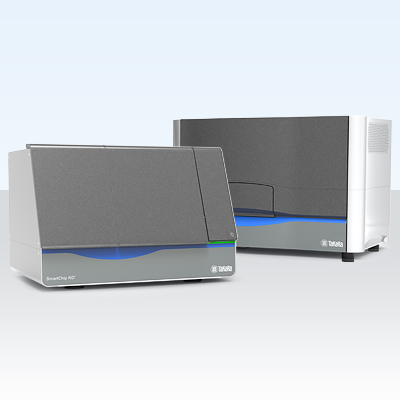Quantitative PCR (qPCR) is a powerful and common technique for accurate analysis of gene expression. Our probe-based qPCR kits are optimized for accurate target quantification and detection over a broad dynamic range, enabling highly reproducible qPCR. These premixes are compatible with all fluorescent oligonucleotide probes or 5' nuclease assays. When deciding whether to do probe-based qPCR or intercalating dye-based qPCR, it is important to consider the advantages and limitations of each method.
Often, probe-based qPCR is used for clinical and diagnostic applications, as it is well-suited for any application that requires maximum specificity and consistent performance. Probe-based qPCR can attain this level of performance because the probes are highly specific for the target sequences and the formation of primer dimers is very rare. Since each probe is uniquely labeled, multiple targets can be amplified in the same tube via multiplexing. This increases throughput, minimizes sample handling, and potentially decreases reagent and consumable usage. Finally, because of the sensitivity and capability of multiplexing, probe-based qPCR works well for genotyping and CNV analyses because the probes can accurately discriminate between different single nucleotide polymorphisms (SNPs) or CNVs.
However, probe-based qPCR has some limitations. While the probes are highly specific, each individual probe can require multiple iterations of design and optimization steps to ensure maximum specificity and performance. Additionally, as the probe is not just an oligonucleotide but contains a fluorophore and a quencher, the probes themselves are often more expensive than simple oligonucleotide primers. While predesigned probes are available, these often have even higher costs.
We offer multiple formats of probe-based qPCR mixes to meet your experimental needs and give you the flexibility to perform a wide variety of applications.






